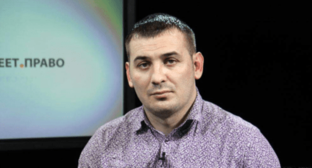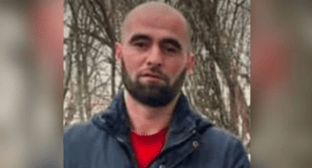20 April 2005, 19:19
Convention against degrading treatment violated in Kabardino-Balkaria
Nine female students of the Kabardino-Balkaria State University (KBSU) were several days ago detained in a university room while reading the Koran and delivered to city division No. 2 of the Nalchik Department of Internal Affairs. Six of the former detainees agreed to talk to a correspondent of Regnum news agency on terms of complete anonymity. The girls are 18 to 22. They said they had gathered in a university room several times a week to study the Koran together. The superintendent of the building entered the room during one such class and announced no one was allowed to leave the room before the arrival of the police. The students were kept in the room for more than 40 minutes. In the meanwhile, all security guards, university officials and deans gathered in the room. The girls were told that by wearing burqas and reading religious literature together they violated the KBSU Charter. They were therefore required to explain their behaviour at the police station. The students' requests to let them go or convoy them to the bathroom were rejected.
The girls were brought to the police station which is 200 meters away from the university in a special police vehicle used to transport criminals. They were forced to give away all their documents, after which they were left to wait in the corridor. In 3 hours, the girls were invited to a room to give explanations. They all were first interrogated in one office and then, one by one, led to a room for search. One of the girls says she was ordered to sign an empty search report. The others do not remember what they signed because they were under stress. The students explain the stress began when one of the girls asked a question to the police officer whom she thought to be superior among the three who interrogated them: "Could you please explain us what we are guilty of? What article of the Russian Criminal Code bans reading the Koran?" In response, the girls heard: "Shut up..."
"This 'shut up' discouraged me from applying to the police forever. I had previously sincerely believed the police could protect me and there was a place to phone. After what I had gone through at the police station, I understood people in police uniforms were the first to be afraid of," a student says.
The girls say they were interrogated by several groups in different offices, but none of the police officers named themselves or told them about detainees' rights. Neither were they allowed to answer calls of their mobile phones or to call their relatives to tell them about what was going on. The students were made to take off their burqas and turn up their skirts. The girls say the behaviour of young people in the last office was especially offensive and degrading. "They asked mockingly about details of sexual intercourse between Muslims and if a Muslim woman was allowed to have sex before marriage and expressed doubts concerning the conscientiousness of the search: 'I would be glad to search you myself.'" Such "investigative activities" continued from 1.00 to 9.00 pm.
"We all come from decent families. And nearly all of us are going to have a certificate with honours. For our parents it is difficult to submit to our wearing burqas without all that, but we can understand them. Seeing what is going on around, they are afraid for our security," the students say.
The girls are not going to lodge complaints, because they think it meaningless. The young Muslim women are sure this was an intimidation action. The girls think they did not do anything wrong. "We do not hide from anyone and we have nothing to conceal, that is why we gathered by day in a university room. We understand and accept the circumspection the society treats women in burqas with and we share indignation about the actions of terrorists. But we are usual Muslim women. Our grandmothers taught us to pray as children. Now this is a subject of persecution, but Islam is not a hobby, faith cannot be changed."
On the next day after their delivery to the police station, all the girls had a talk with deans. They were told that, in spite of their fine performance and behaviour, they might be sent down for any fault. The faults mentioned included gatherings and conversations in university rooms with other Muslims, public reading of the Koran and the like. There is no praying room at the university and the nearest mosque was closed by the authorities in the summer of 2004. "The recent events and the ban on group praying convince us that we are being purposely driven to the underground," the students told Regnum.
The Kabardino-Balkaria Ministry of Internal Affairs declined comment indicating the Regnum correspondent had no accreditation.
More about North Caucasus:




